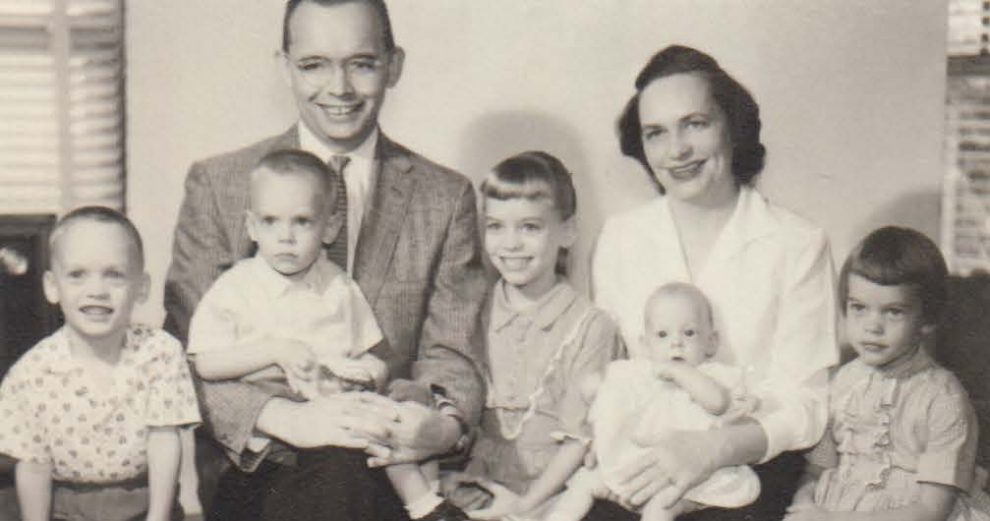 Reader Question:
Reader Question:
What are ways that worked that you have found to teach a 25-yr-old-ish young adult to step out in faith?
Family Answer:
This truly is a good question. In our family, and as Mormons, we believe strongly that sincere, honest questions are always a good thing. To gather answers to this question, we talked to our adult kids and their spouses, and here are the answers we gathered:
- A big thing I think for me is that now that they’re older they don’t
need or want to be told what to do. Once you’re 25, you can and should be making decisions on your own. I think that examples and suggestions should be made, or stories of what others have done, but ultimately make them feel like they have the power to make good decisions and that you have confidence in them to make those decisions wisely, especially the hard ones. - Doubt not what you know. It was really said best recently at general conference: “First doubt your doubts before you doubt your faith.” [“Come, Join with Us”, President Dieter F. Uchtdorf, Oct 2013 LDS General Conference.] Analyze the source of your doubts and judge its validity. Why are these doubts coming now? Are they justified? Will this crush my peace and hope? Is it worth it to dwell on this or should I cast these thoughts aside?
 What’s vital for me and for anyone is teaching me the importance of a direct connection with God. Young adults must be able to get answers directly from God, on their own, through personal revelation. The entire Church of Jesus Christ is based on this concept. If they’re not willing to try that connection, that’s OK, but they’ll never know the source of information and comfort that they’re neglecting.
What’s vital for me and for anyone is teaching me the importance of a direct connection with God. Young adults must be able to get answers directly from God, on their own, through personal revelation. The entire Church of Jesus Christ is based on this concept. If they’re not willing to try that connection, that’s OK, but they’ll never know the source of information and comfort that they’re neglecting.- Go about doing things with pure intent, with real intent.
- Have the courage to live up to your standards, to live what you believe. There is a point (or should be a point) when we realize that our beliefs are really ALL that matter. And what are we, if not our beliefs? What does that make us if we can’t live what we believe?
- We as young adults need to decide to be a disciple of Christ. Will I live this or not?
- Parents should find ways to share with me, share deep, internal feelings with the young adults in their lives. As we’re talking together, as we go through life, find ways to bear testimony to me. Don’t be dumb about it, but find a way to continue to touch my heart about gospel topics. This is so important to find a way to connect with me about situations or on a level different from the way a parent connected with me as a little kid or as a teen.
- The feelings you felt from God were true then and are STILL TRUE NOW. Write down what He tells you. Read it again and again. Don’t criticize your past self but give yourself credit for how you felt and trust in your past feelings. If you once felt God’s love, don’t belittle yourself by casting that aside.
What are ways that worked that you have found to teach 35-yr-old-ish children with kids of their own to step out in faith?
- I really like that you tell me stories of when I was a kid. They jump in my head when I need them with my own kids.
- I have found a huge difference between me as an adult without kids, and me as an adult with kids, in terms of spirituality. I feel that feeling the spirit takes more work as an adult with kids. This may be due to a combination of things which I have considered recently:
- I attend Sunday School less due to having a child in arms who is not yet nursery age.
- I read scriptures with my kids each night so I have become complacent with my own personal scripture study and my scripture study with my wife since I can “check off” the scriptures for the day.
- The house is less quiet and it takes more concentration to feel the whispering of the Holy Ghost.
- I haven’t been as diligent in setting aside time to self evaluate/journal write/think about my calling or home teaching families.
- My personal prayers have not been very consistent at all, mainly because I feel like I am praying with my kids all day! In the morning at breakfast, before they go to school, at lunch, at dinner and before they go to bed. I notice a very obvious difference in my personal spirituality when I pray personally each day, but it is easy to think to myself that I “checked off prayer a bazillion times today, I don’t need to pray before I go to bed.”
- If I am not praying personally, then I am not repenting each day and explaining to Heavenly Father that I want to do better tomorrow. If I am not repenting each day then I am not able to have His Spirit as much in my life and, as a result, it is more challenging to listen to the spiritual guidance I need to be hearing.
 Each of these six things take a toll on my spirituality and my testimony of God and His truths. I have had to actively try to increase my own spiritual experiences through hard work and great effort, because I want to. They aren’t coming naturally anymore. Just going to church isn’t doing it anymore for me. I am having to make an active decision to pursue my testimony of the truth. If I did not have this desire, then I would not be motivated to go through the work it takes to gain back the good habits I have lost over time. It is hard, and it takes time away from my own selfish desires, but I have to ask myself, “What do I want out of this life?” and things are put into perspective.
Each of these six things take a toll on my spirituality and my testimony of God and His truths. I have had to actively try to increase my own spiritual experiences through hard work and great effort, because I want to. They aren’t coming naturally anymore. Just going to church isn’t doing it anymore for me. I am having to make an active decision to pursue my testimony of the truth. If I did not have this desire, then I would not be motivated to go through the work it takes to gain back the good habits I have lost over time. It is hard, and it takes time away from my own selfish desires, but I have to ask myself, “What do I want out of this life?” and things are put into perspective.- Things I can do to counter the six things I listed that are barriers to my spirituality.
- Actively read over the Sunday School lesson prior to going to church (something I should be doing anyway…), so that, when I’m able to be in class, I can actively take part.
- Read scriptures personally and with my spouse. This takes time away from selfish desires, which makes it challenging.
- Make quiet time for myself, whether it is during the day, or after the kids go to bed.
- Make time to contemplate how I am doing/journal write/think about home teaching families and my calling.
- Recommit to personal prayer daily, and pray for my home teaching families (for whom I have shepherding responsibilities) and for those I serve in my calling and assignments at church. This will allow me to be more mindful of those individuals throughout the day which will allow me to be more open to what Heavenly Father wants for them. Daily prayer will also allow me the opportunity to repent each day to allow me to feel the Spirit stronger.
And let us know how we may help you further! If you find that you have any questions about religious issues that you’ve been wondering about or that you haven’t been able to get good answers to, feel free to continue on discussion with us. It turns out that there are a lot of people with questions, and most of them have given up on churches as a source of answers. In our family, it is our experience that answers are out there, that God wants us to have them, and that they tend to be answers we like and have learned to appreciate. Working together with Heavenly Father allows anyone to find certainty in uncertain times.
-Dave and the MormonPanorama Family
——– End of Post ——–
WebCredits—List of web resources used in this post but not explicitly credited above:
- Photo, discussing-things-of-faith— lds.org
- Photo, young-adults-participate-at-church—lds.org
- Photo, family-in-love—kaileyraephoto.blogspot.com
- Photo, family-studying-together—www. lds.org/topics/family-history?lang=eng
- Photo, “We Love Our Kids”—soloriquezas.info/salud-y-bienestar
——– End of WebCredits ——–








